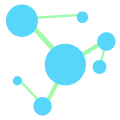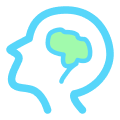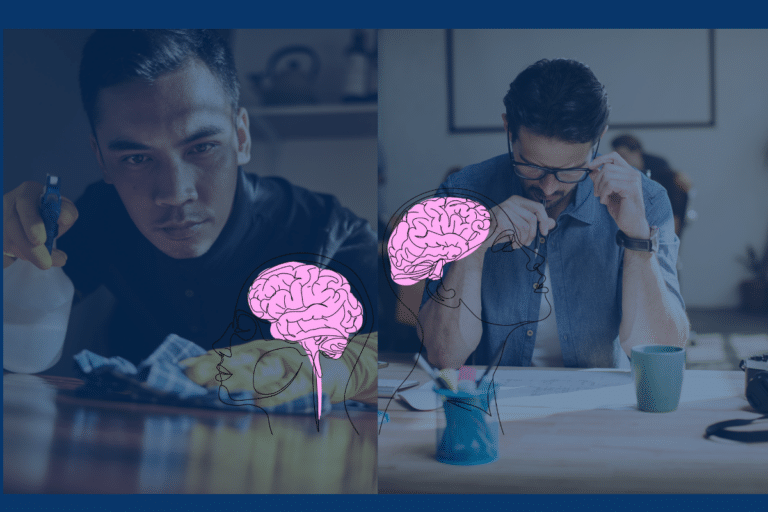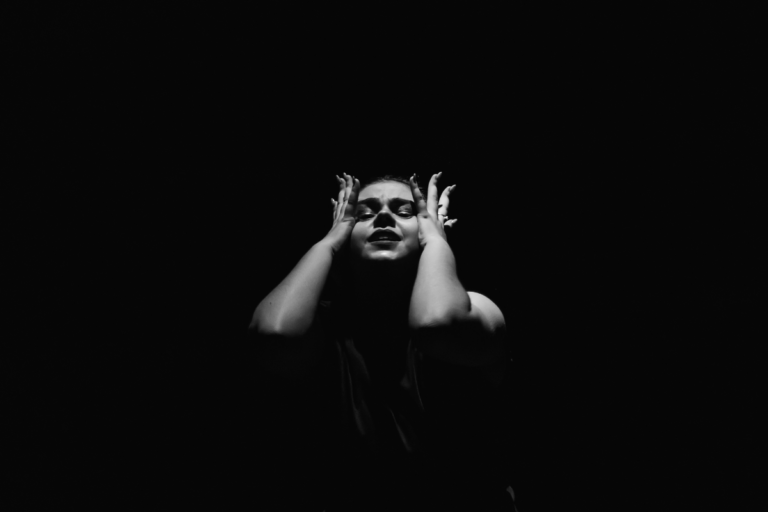Obsessive-Compulsive Disorder (OCD)
Obsessive-Compulsive Disorder (OCD) is a chronic mental health condition that involves intrusive, unwanted thoughts (obsessions) and repetitive behaviors (compulsions). At Animo Sano Psychiatry, we provide care for individuals with OCD with a combination of therapy and medication, allowing you to regain control of your life. We provide care through telepsychiatry and in-person visits making care flexible and convenient.
What is OCD?
Obsessive-Compulsive Disorder (OCD) is a mental health condition marked by a cycle of obsessions and compulsions. Obsessions are persistent, unwanted thoughts, images, or urges that cause distress or anxiety. Common obsessions include fears of contamination, harm, or inappropriate behavior. Compulsions are repetitive actions or rituals performed to reduce the anxiety caused by these obsessions. These may include excessive cleaning, checking, counting, or repeating specific actions. While performing compulsions may offer temporary relief, it often reinforces the obsession, leading to a disruptive cycle that can significantly affect daily life.
OCD is not just about being overly clean or organized—it’s a disorder that can consume hours of a person’s day and severely impact functioning at work, school, or in relationships. Symptoms often intensify under stress, but with the right treatment, including therapy and medication, individuals with OCD can learn to manage their symptoms effectively.
Symptoms of OCD
What Causes OCD?
OCD can develop due to several factors, including:

Genetics
Having a family history of OCD may increase the risk.

Brain Structure
Imbalances in brain chemistry, particularly serotonin, are linked to OCD.

Environmental Stress
Traumatic life events or prolonged stress can contribute to the onset of OCD.

Other Mental Health Conditions
Co-occurring conditions like anxiety, depression, or substance use disorders can play a role in the development of OCD.
How Animo Sano Psychiatry Treats OCD
Evaluation & Diagnosis: We start with a comprehensive assessment to understand your symptoms and determine an accurate diagnosis. This allows us to develop a treatment plan tailored to your needs.
Personalized Treatment Plan: We collaborate with you to create a plan that incorporates therapy and medication, depending on the severity of your symptoms.
Medication Management: Selective serotonin reuptake inhibitors (SSRIs) are commonly prescribed to manage OCD symptoms. Our team will closely monitor your progress and make adjustments as needed.
Therapy: Cognitive Behavioral Therapy (CBT), especially Exposure and Response Prevention (ERP) is highly effective in treating OCD. We offer a direct referral pathway to NOCD for evidence based ERP therapy.
Transcranial Magnetic Stimulation (TMS) Therapy: TMS is a non-invasive, FDA-approved treatment that uses magnetic pulses to target brain areas linked to OCD. It’s a valuable option for those who haven’t found relief with traditional therapies.
Other Conditions We Treat
We specialize in treating a variety of behavioral health conditions, including but not limited to:
Anxiety
Bipolar Disorder
ADHD
Depression
Trauma and PTSD
Sleep Disorders
Frequently Asked Questions
Have questions? We have answers. Browse through our FAQ section to learn more about our psychiatry and behavioral health services, your first visit, and what to expect.
Advice and Insights from Animo Sano Psychiatry
Do you want to Contact Us?
Start Your Treatment Journey Today
At Animo Sano Psychiatry, we are dedicated to helping individuals manage OCD through personalized treatment plans that combine therapy and medication. Let us support you on your journey toward a better quality of life.




